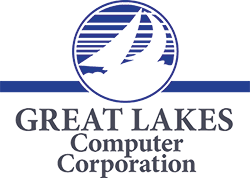 Cloud computing is a buzzword that gets tossed around a lot, but it can offer the small business cost- and time-saving benefits.
Cloud computing is a buzzword that gets tossed around a lot, but it can offer the small business cost- and time-saving benefits.
Small businesses often lack the time, IT services, personnel, and budget to devote to computing and security needs, getting by with a couple of computers and a shared hard drive instead of a server and full network of computers. Cloud computing can provide enterprise level applications at a fraction of the cost that would be involved to purchase the software itself, bringing small businesses all the benefits without the big price tag.
How It Works
In fact, if you use social media or hosted email platforms, such as Gmail, you’re already using cloud computing technologies. All of your Gmail messages, tweets, and status updates are stored in the cloud, not on your local machine. Cloud computing for businesses takes the power, storage capacity, and accessibility you’re already enjoying in your social life, and finds practical solutions for the modern business.
Cloud providers from Google to Microsoft–and a host of other, lesser-know names–provide you with access to all of the tools needed to run your business, with a secure webpage sign-in. Once you log in, you have access to email, calendars, databases, word processing, and other tools.
Get as little or as much functionality from the cloud as you need for your small business, and test out new programs with a free trial for a limited time period. Choose from available cloud systems that are open to all, such as Gmail, or a private cloud that exists just for your business and is hosted at a cloud provider or managed on site. If you manage the cloud on site, your IT staff will need to spend time maintaining, updating, and managing the cloud for you. Keep in mind in this case that you may not realize a great productivity savings.
Small Business Savings
Cloud computing can have a real impact on small business finances, especially if you choose low cost cloud providers (as long as you can manage without all the bells and whistles). Imagine not having to pay for expensive invoicing, CRM, and other applications. Or not having your IT staff spend time on maintenance, upgrades, and system troubleshooting. If you have hosted cloud service, all of the back-end maintenance is performed by the cloud provider. This nets your IT services staff significant time savings, enabling them to be more productive in other areas.
Productivity
By using other Software as a Service (SaaS) cloud applications such as a remote-hosted accounting system, remote backup support, or outsourced server monitoring, you minimize the amount of time lost to switching tasks, which compromises much of employee productivity. No more waiting for slow programs to load, or switching from one interface to the other. These small time savings add up.
You’ll also notice additional time savings for departments such as Marketing. Cloud platforms make email blasts, social media posts, and virtual events including webcasting and conference calling, easier to plan, execute, and track.
The cloud also gives you the ability to try out new systems, including ones that you might have thought about buying before, but held off due to cost or the time it would take your employees to implement the new system. Since the cloud offers new systems with nothing more than a plan modification, your IT staff will not have to install, learn, teach, and troubleshoot a new system. This leaves your employees more free time to do their primary tasks.
Staying Up-to-Date
The cloud as a productivity catalyst is only one benefit from cloud computing. Cloud computing and SaaS also let you modify, upgrade, adapt, and stay current with technology trends without having to invest capital. You won’t spend time analyzing system requirements or comparing competitive software packages, because you’ll use your cloud application’s particular module for a given task. No more comparing Google calendar to Outlook to Calcium to four other providers.
Summary
Although there can be some offsetting drawbacks (see our previous post regarding the pros and cons of cloud computing), in general cloud computing can be a cost effective solution that not only simplifies your business’s IT function, but can also positively impact your entire organization.



